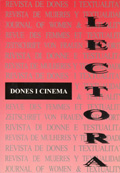Mitos femeninos que transformaron la visión cultural
Resum
Lidia Blanco explains the efforts she repeatedly made to try to find some new feminine “models” that could successfuly do away with stereotypical gendered behaviours and conventions. However, she acknowledges that she did not succeed, or that she only succeeded while looking for them as, at the end of the day, substituting one model for another leads to nothing but to homogeneity and conformism. As she says, “Re-creating, then, one mythology of woman was the same as creating a class of special beings... a new and distant Heaven... in which one should believe and which one should worship”. On the other hand, Blanco talks about the progressively political nature of culture. She ends her article saying that in order to fight for equality, women have often forgotten about her differences and uniqueness. Equality is not to be confused with sameness, Blanco suggests.Descàrregues
Publicades
Com citar
Número
Secció
Llicència
Els autors i les autores conserven els drets d’autoria i atorguen a Lectora: revista de dones i textualitat el dret de difusió. L'’obra serà disponible simultàniament sota una Llicència de Reconeixement-NoComercial- SenseObraDerivada de Creative Commons que, si no si indica el contari, permet compartir l’obra amb tercers, sempre que aquests en reconeguin l’autoria i la publicació inicial en aquesta revista.
Els autors i autores són lliures de fer acords contractuals addicionals independents per a la distribució no exclusiva de la versió de l’obra publicada a la revista (com ara la publicació en un repositori institucional o en un llibre), sempre que se’n reconegui la publicació inicial en aquesta revista.
S’encoratja els autors i autores a reproduir la seva obra en línia (en repositoris institucionals, temàtics o a la seva pàgina web, per exemple), amb l’objectiu d’aconseguir intercanvis productius i fer que l’obra obtingui més citacions (vegeu The Effect of Open Access, en anglès).





